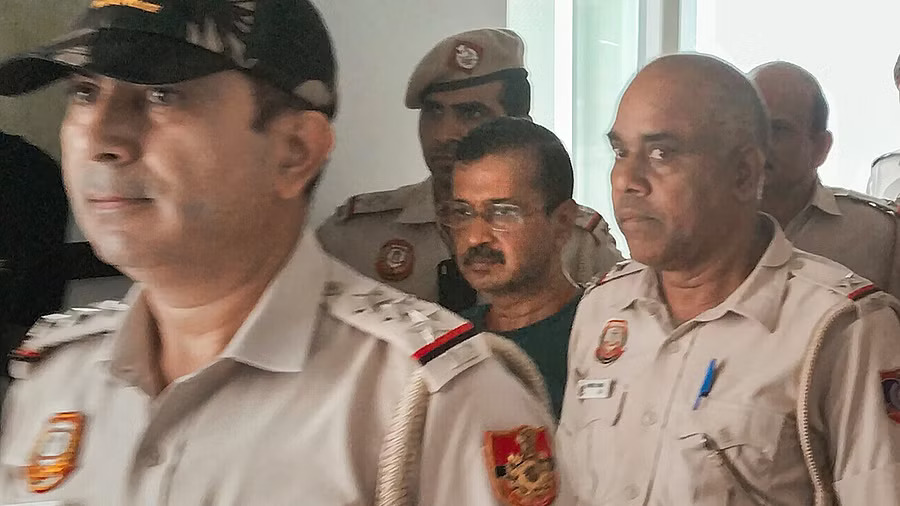The legal proceedings involving high-profile individuals often attract significant public and media attention. Recently, the Enforcement Directorate (ED) raised concerns before the Supreme Court of India, alleging that a judge hurried the process and did not provide the prosecutor with a fair opportunity to oppose Delhi Chief Minister Arvind Kejriwal’s bail application. This claim has sparked debates on judicial conduct, procedural fairness, and the broader implications for the legal system.
The Background
Arvind Kejriwal, the Chief Minister of Delhi, has been embroiled in several legal battles over the years, often related to allegations of corruption and misuse of power. His recent case, which led to his bail application, is particularly noteworthy given its political ramifications and the intense public scrutiny it has garnered.
ED’s Allegations
The Enforcement Directorate, a key agency in investigating financial crimes and enforcing economic laws in India, has accused the presiding judge of hastening the bail proceedings. According to the ED, the judge’s expedited handling of the case denied the prosecution an adequate opportunity to present their arguments against granting bail to Kejriwal.
Key Points of the ED’s Allegation:
- Lack of Fair Hearing: The ED contends that the judge did not allow sufficient time for the prosecutor to oppose the bail application. This, they argue, undermines the principles of natural justice, which mandate that both parties must be given a fair chance to present their case.
- Procedural Irregularities: The ED has pointed out procedural irregularities in the judge’s conduct, suggesting that the haste with which the bail was granted raises questions about the impartiality and thoroughness of the judicial process.
- Impact on Legal Proceedings: The ED believes that such actions could set a dangerous precedent, potentially affecting the integrity of future legal proceedings involving high-profile individuals.
Legal and Public Reactions
The ED’s allegations have elicited varied reactions from legal experts, politicians, and the general public:
Legal Experts’ Views
- Procedural Fairness: Many legal experts emphasize the importance of procedural fairness in judicial proceedings. They argue that if the ED’s claims are accurate, the judge’s actions could be seen as compromising the integrity of the legal process.
- Judicial Discretion: Some experts defend the judge’s discretion, suggesting that decisions on bail are often subject to the judge’s assessment of the case’s merits and the risk factors involved, such as flight risk or tampering with evidence.
Political Reactions
- Political Allegations: Kejriwal’s supporters view the ED’s claims as politically motivated, aimed at tarnishing his image and stalling his political career. They argue that the legal system is being used to target political opponents.
- Opposition Critique: Critics of Kejriwal, on the other hand, assert that the allegations highlight the need for a thorough investigation into judicial conduct and the potential influence of political power on legal proceedings.
Public Opinion
The general public’s response has been mixed, with some expressing concern over the fairness of the judicial process, while others view the controversy as another instance of political maneuvering in India’s complex and often contentious political landscape.
Broader Implications
The allegations brought forth by the ED raise important questions about the functioning of India’s judicial system:
- Judicial Accountability: The case underscores the need for mechanisms to ensure accountability and transparency in judicial proceedings, particularly in high-profile cases.
- Balancing Speed and Fairness: While timely justice is essential, it must not come at the cost of procedural fairness. The judiciary must balance the need for swift decisions with the obligation to provide all parties a fair hearing.
- Public Trust in the Legal System: Incidents like these can impact public trust in the legal system. Ensuring that judicial processes are perceived as fair and impartial is crucial for maintaining confidence in the rule of law.
Sponsored
FACTS Transcripts
Apply for a University document anywhere
https://www.factstranscript.com
Quick Transcripts for popular Universities, check your University name now and get started. We help you to get your transcript application online which is accepted for use of IRCC.
No DD, NO Paperwork. 100% Authentic, Reliable.
FACTS Transcripts Charges · Reviews · Assam Universities · Home · Know your University










